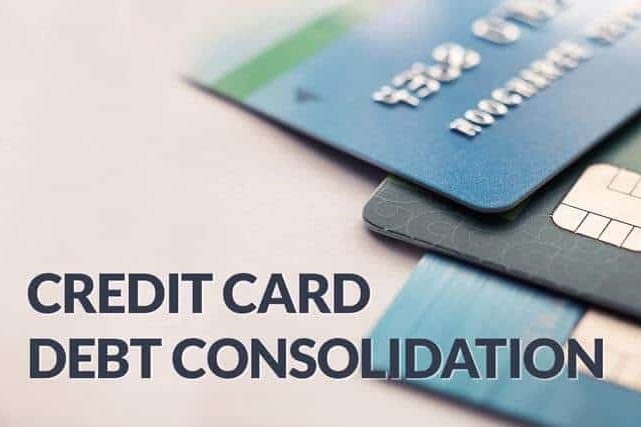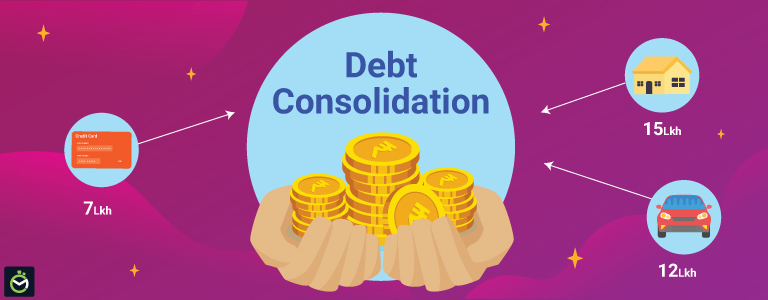Consolidating credit card debt can be a smart strategy, but it depends on your specific situation. Here's a breakdown of the pros and cons to help you decide.

Consolidate Credit Card Debt Introduction
When managing credit card debt, effective solutions are crucial. One option that often comes to mind is credit card debt consolidation. But what does it mean? Credit card debt consolidation refers to combining multiple credit card debts into a single payment, usually through a personal loan or balance transfer.
Managing credit card debt is crucial for your financial health. High interest rates and increasing payments can quickly become overwhelming, impacting your credit score and overall financial stability. This article will examine whether consolidating credit card debt is a wise decision and assist you in making an informed choice.
By understanding the advantages and disadvantages of consolidating credit card debt, you can determine if it is the right choice for you. This article will discuss potential benefits, such as lower interest rates, simplified repayment processes, and the potential to improve your credit score. However, it will also delve into the drawbacks, including fees, short-term credit score impact, and the need for disciplined financial management.

Before making a decision, it is crucial to consider various factors. We will assist you in evaluating your personal financial situation, exploring available consolidation options, and comprehending the terms and conditions. If necessary, seeking professional advice can provide additional clarity and help you make the best choice for your individual circumstances.
Keep in mind that consolidating credit card debt is not the sole solution available. We will also consider alternative approaches such as creating a budget, negotiating lower interest rates, utilizing balance transfer options, and seeking credit counseling services. With these alternatives in mind, you can weigh the pros and cons and determine the path that aligns best with your financial goals.
In conclusion, deciding whether to consolidate credit card debt requires careful consideration. By understanding the potential benefits, drawbacks, and alternative options, you can make an informed decision that leads to financial freedom. Let's explore the world of credit card debt consolidation together and find the best solution for you.
Pros of Consolidating Credit Card Debt
When deciding whether to consolidate credit card debt, it is important to consider the potential benefits. Here are some advantages to keep in mind:

Lower Interest Rates
Consolidating credit card debt can provide a key benefit: lower interest rates. High credit card interest rates can impede debt repayment progress. By consolidating credit card debts into a single loan or balance transfer, you may qualify for a lower interest rate. This can significantly reduce the amount of interest you pay over time, allowing you to save money and pay off your debt more efficiently.
Simplified Repayment Process
It is overwhelming and confusing to manage multiple credit card payments with varying interest rates and due dates. Consolidating credit card debt simplifies repayment by combining multiple payments into one monthly payment. By consolidating, you only need to focus on one payment. This alleviates stress and makes it easier to stay on top of financial obligations.
Potential Credit Score Improvement
Consolidating credit card debt can positively impact your credit score. It reduces the number of open credit accounts and can lower your credit utilization ratio. A lower credit utilization ratio demonstrates responsible credit management and can boost your credit score over time.
Ability to Save Money in the Long Run
Consolidating your credit card debt and securing a lower interest rate can save you a significant amount of money in the long run. Reduced interest charges mean more of your monthly payment goes towards paying off the principal balance, helping you become debt-free sooner. The savings you accumulate can be used to invest in your future, build an emergency fund, or achieve other financial goals.
Understanding the benefits of consolidating credit card debt can demonstrate its advantages for many individuals. However, it is important to consider the potential drawbacks and evaluate your financial situation before making a decision. The following section will explore the disadvantages of credit card debt consolidation.
Cons of Consolidating Credit Card Debt
Although credit card debt consolidation has several advantages, it is important to consider the potential drawbacks before making a decision. Let's explore some of the disadvantages associated with consolidating credit card debt:

A. Potential fees and costs
When consolidating credit card debt, it is essential to be aware of any fees or costs involved. Depending on the consolidation option you choose, there may be origination fees, balance transfer fees, or closing costs. These expenses can add up and impact the overall effectiveness of consolidation. It is important to carefully review the terms and conditions to ensure that the fees do not outweigh the benefits.
B. Potential impact on credit score in the short term
Consolidating credit card debt may have a temporary impact on your credit score. Opening a new credit account or taking out a loan can result in a slight decrease in your score initially. However, over time, as you make regular payments and reduce your debt, your credit score should improve. It’s important to be prepared for this short-term impact and consider its potential implications.
C. Need for disciplined financial management
Consolidating credit card debt requires disciplined financial management. It is not a quick fix for underlying spending or budgeting issues. If you do not address the root cause of your debt and continue to use credit cards irresponsibly, consolidation may only provide temporary relief. It is crucial to develop healthy financial habits, create a budget, and stick to it to avoid falling back into debt.
D. Potential for increased debt if not managed properly
Consolidating credit card debt can be helpful, but it carries the risk of accumulating more debt if not managed properly. Although consolidation may provide relief, it's crucial to avoid the temptation to continue spending on credit cards. Without a proactive approach to managing your finances, you may end up with more debt than before consolidation. To ensure the success of your debt consolidation efforts, it is crucial to exercise self-discipline and make responsible financial choices.
By considering these potential drawbacks, you can make an informed decision about whether consolidating credit card debt is the right choice for you. It is important to weigh the cons against the benefits and assess your ability to handle any challenges that may arise. Remember that with careful financial management, you can overcome these obstacles and achieve long-term financial stability.
Considerations Before Consolidating Credit Card Debt
Before consolidating credit card debt, it is essential to consider several key factors. Assess your personal financial situation, evaluate available consolidation options, understand the terms and conditions, and seek professional advice if needed. These considerations will help you make an informed decision.
[caption id="attachment_9447" align="alignnone" width="1024"] Young woman drink a cappuccino at the cafe, using laptop for online card payment. She is worried[/caption]
Young woman drink a cappuccino at the cafe, using laptop for online card payment. She is worried[/caption]
A. Assessing Personal Financial Situation
Begin by analyzing your current financial situation. Calculate your total credit card debt, including interest rates and monthly payments for each card. Consider your income, expenses, and any other outstanding debts. Understanding your financial obligations and capabilities will help you determine if consolidation is a viable option for you.
B. Evaluating Available Consolidation Options
Next, consider the different consolidation options available to you, such as personal loans, balance transfers, or debt consolidation programs. Research and compare interest rates, repayment terms, and associated fees for each option. Evaluate the advantages and disadvantages of each choice and select the one that aligns with your financial objectives.
C. Understanding the Terms and Conditions of Consolidation
Before committing to any consolidation method, it is important to carefully read and understand the terms and conditions. Pay close attention to interest rates, repayment schedules, and any penalties for missed payments. Being fully aware of what you’re signing up for will save you from unexpected surprises and ensure you can meet your obligations.
D. Seeking Professional Advice if Needed
If you are uncertain or overwhelmed, seek professional advice. Financial experts, such as credit counselors or financial advisors, can provide valuable insights tailored to your specific situation. They can help you navigate the complexities of credit card debt consolidation and guide you towards the best course of action.
Remember, making an informed decision is crucial when it comes to consolidating credit card debt. By assessing your financial situation, evaluating available options, understanding the terms and conditions, and seeking professional advice if necessary, you can confidently move forward in your journey towards financial stability.
Conclusion
In conclusion, when dealing with credit card debt, it is important to consider all available options. Consolidating credit card debt can be a wise decision for some individuals, providing benefits such as lower interest rates, simplified repayment processes, and the potential to improve credit scores. However, it is crucial to weigh the potential drawbacks, including fees, short-term credit score impact, and the need for disciplined financial management.
Before deciding to consolidate credit card debt, it is important to assess your personal financial situation. Evaluate the available consolidation options, understand the terms and conditions, and seek professional advice if necessary. Remember, making an informed decision is key to achieving long-term financial stability.
If consolidating credit card debt does not seem like the right fit, there are alternative approaches to consider. Creating and adhering to a budget can assist in regaining control of your finances. Negotiating lower interest rates with credit card companies can also provide relief. Utilizing balance transfer options can consolidate debts without taking on additional loans. Finally, credit counseling services can offer guidance and support in managing credit card debt effectively.
At debt.hoadepviet.com, we understand the challenges of credit card debt and the importance of finding the right solution for your financial well-being. We hope this article has provided valuable insights into smart consolidation of credit card debt and alternative approaches. Remember, taking action to address your credit card debt is the first step towards a brighter financial future.